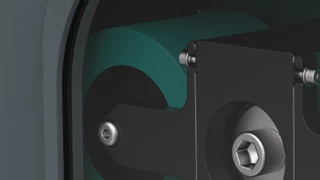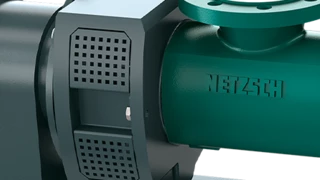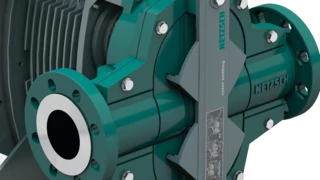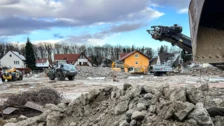NETZSCHicon
Corrosion
Corrosion (derived from the Latin word "corrodere", meaning "to decompose") describes the interaction of a material, usually made of metal, with substances from its environment. This leads to the formation of a corrosive element and, simultaneously, to detectable changes in the material, which often negatively affect its properties.
About pump systems, corrosion can occur in various manifestations, both under the influence of chemical processes and in combination with mechanical stress. Typical examples of types of corrosion are:
- Surface corrosion
- Pitting corrosion
- Erosion
- Cavitation
To prevent corrosion in pumping systems, it is essential to carefully consider the material properties of the components in contact with the fluid being pumped. Effective protection against pitting corrosion, which can be caused by chlorides, for example, can be achieved by using molybdenum alloys or the use of plastic pumps.





